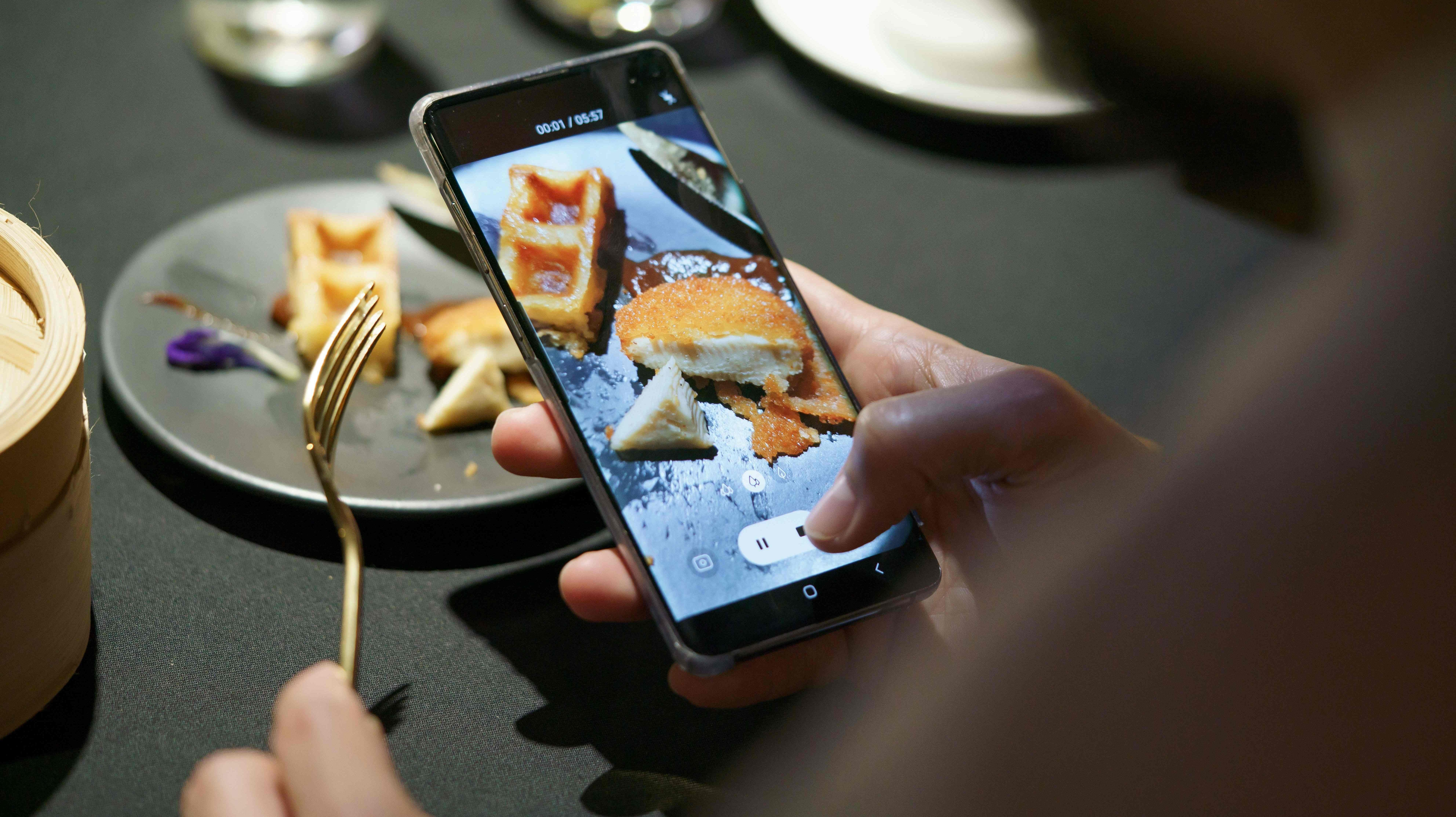This Is The Wrong Way To Become A Food Influencer
Two Australian Instagrammers learn the hard way that you should never ask a restaurant for free food.
So you want to be a food influencer. I don't blame you—the combined ubiquity of social media and food makes it seem like an accessible goal. But just because everyone can doesn't mean everyone should, especially when they ignore the unspoken rule of the entire food and drink industry: Don't ask for free shit.
Two Australian aspiring influencers learned this lesson the hard way when one restaurant put them publicly on blast. In the Know reports that the pair behind the Instagram account Two Teaspoons, which currently has around 2,600 followers, slid into a restaurant's DMs asking if they could "come in and try it out in exchange for some stories on our personal accounts and a post and stories on our food account." This comes in the midst of #couscousforcomment trending on Instagram throughout Australia, the hashtag being used to shame people for asking for free meals from small businesses.
While the restaurant in question has not been officially identified, Australian restaurant critic John Lethlean got ahold of the restaurant's response and posted it to his Instagram page. It reads:
Apologies for the delay...I've been grappling with how much rage to demonstrate/throw in your direction. I've decided to take the high road and explain a few things to you in the hope that you learn something and become a better person. Reaching out blind to a venue you know nothing about looking for free stuff is a shitty enough thing to do in the best of times...But it's even worse when COVID is still very much a thing, affecting small businesses like us devastatingly for two years now.
The message goes on to say that the influencers should spend money and post anyway to support restaurants, working to show that whatever future "collabs" they may do will benefit the businesses and not just those posting for a free meal.
Food influencer vs. food critic
In many ways, the food influencer is like the modern-day food critic. Less and less are people turning to the pages of their local newspapers to see what journalists have to say about local restaurants, and more and more folks are relying on Instagram and TikTok to learn about the hottest spots in their neighborhoods. But there's one major difference between the food critics of old and the influencers of the present day: discretion.
It used to be very important for critics to dine in a restaurant unnoticed. Anonymity was key to ensure that there was no special treatment—reviews would be an accurate reflection of what an average night is like for an average diner at any given spot. In my previous life as an editor for the Chicago Reader, Chicago's alt-weekly, I learned this lesson from food writer Mike Sula (who is still doing amazing food coverage over there, TikTok be damned!). For the first few years I worked there, Sula wore a luchador mask to conceal his face, both in his staff photo and in public appearances tied to the publication. While not every critic approached the idea of discretion with such eccentricity, it was still common practice to lie low.
Meals might be comped by the publication the critic is writing for, but the restaurant is still getting money in its pocket. A true critic would never accept a meal for free that they were writing about—it implies that a good review can be bought.
With the advent of social media, the rise of food television, and the currency placed on being a "personality," well, influencers were born. When an influencer is out to eat, every dish and bite is captured in real time. There's a very strong "do you know who I am" energy that permeates an Instagrammer walking through the door of a restaurant. No longer does it become about what the common experience looks like, but about making every experience as extravagant and VIP-adjacent as possible. In many cases, it's no longer even about the taste but the look and novelty of the food. And it's that shift in ideals that has seemed to lead people to think it's worth bars' and restaurants' while to give things out gratis.
Is it ever okay to ask a bar or restaurant for a free item?
At The Takeout, we're no strangers to free stuff—we get sent samples of food and drinks and other strange swag (I just got a personalized basketball jersey from a cheese company, for instance) on the daily. And a few of us have worked in the restaurant industry, where it's common for a server or a bartender to throw in a free shot or comp a meal as a show of good faith. But in either scenario, the free stuff comes as a welcome surprise, not as the result of a request to "collab." (Note: Acceptable exceptions to this rule are things like a meal making you sick or finding a frog in your salad.)
Whether you're an aspiring influencer or not, never ever ask anyone at a bar or restaurant for something for free. (No, not even if it's your birthday.) Especially now, restaurants can use any help they can get to keep the cash flowing. And if you are angling to become some sort of food personality on social media, the best way to build a good reputation is to support bars and restaurants and get to know the folks who run and frequent them organically. Maybe then you'll receive the VIP treatment, but it will be well earned, rather than an example of what not to do trending on Instagram.
